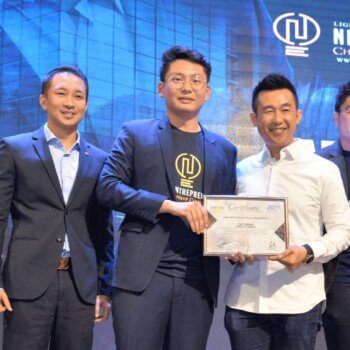Start-up companies in a cut-throat, fast-growing business world are familiar with the accusation “copycat”, often hurled at them by bigger and more established businesses that are embittered by the fact that smaller, inexperienced teams can catapult to success after copying them. But the successes of these start-ups speak volumes about this method of developing businesses. None of these entrepreneurs are dumb enough to create mere carbon copies and claim them as their own businesses. These days, it’s all about learning, emulating and changing. Want to be on top? Look to the best and then beat them at their own game.
In an article written for The New Yorker, Malcolm Gladwell referred to Steve Jobs as a “Tweaker”. He described the infamous Jobs as a perfectionist, saying that “Jobs’s sensibility was editorial, not inventive. His gift lay in taking what was in front of him…and ruthlessly refining it.” The new Tweakers of today are the hardy entrepreneurs who have a knack for identifying high-potential business models that they can adopt and adapt.
Image credit: commons.wikimedia.org
Ask any businessman where the copycats of the world are and he’ll most likely point a finger at China, where the sheer size of the population means that new businesses are emerging every day. But do new businesses necessarily mean new ideas or products? Certainly not! As Chinese business men will tell you frankly, copying ideas from others can have many advantages.
Firstly, the need for innovation is immediately reduced. How many people can actually come up with brand new ideas, purely derived from the crevices of their mind and completely estranged from any existing idea? And how many of those ideas are actually feasible and most importantly, profitable? Copying other business models means that you are already embarking on a business venture that you know will work because others have already done the work for you. All those brainstorming sessions and testing periods – you can skip all of that.
Secondly, risk is also minimised because the business idea has already proven to be workable. Someone has already taken the plunge and introduced it to the market on your behalf. All that’s left to do for you is to follow suit and ride on the success of your predecessor, which leads to the third advantage – consumer familiarity. Your target audience already knows what your idea is about so you don’t have to waste resources on trying to introduce your concept from scratch.
Image credit: flickr.com
But the most important aspects of this whole process include creating your own brand name and modifying existing ideas to suit your local market. As Custer from techinasia elaborates on the new business atmosphere in China: “The days of directly copying foreign internet businesses to China and being confident they’ll succeed are long over, because Chinese internet users have different habits and desires than their Western counterparts…Now, it’s all about execution, and because the Chinese market is so different, anybody who directly copies a foreign company’s execution of an idea is likely to get crushed by local competitors who take that idea and adapt it better to the local market.”
Turning someone’s idea into your own is no easy feat. For you to really make your brand name known takes a lot of time and effort; you have to add your own unique touch to get ahead of the other competitors. After all, if everyone is doing the exact same thing, how can consumers differentiate one from the other? The best of the best are no mere copycats – they are inspired and influenced by business models or strategies but they know that improvements can be made. So they set to work – copying, improving, enhancing and tweaking.
Image credit: startupstockphotos.com
One great example is lingerie giant Victoria’s Secret, who is now trying to change their business operations to Zara’s fast fashion concept. The Spanish clothing and accessories retailer ZARA uses an unconventional business model: they issue new stock twice every week and this turnover rate is unique to them. In fashion, most retailers work on predicting trends nearly a year in advance but Zara keeps their competitive edge through limiting stock to keep customers wanting more.
Going back to China, microblogging service Sina Weibo was lambasted for copying Twitter when it first launched, but loyal users of Weibo will tell you that the nuanced difference between them lies in how Weibo is specially designed for the Chinese audience. In Mandarin Chinese, 140 characters can contain much more meaning than it can in English. This means that users can go into more detail when expressing themselves and shows how Weibo can stand on its own in a market that allows them to display their expertise.
In the same New Yorker article, Gladwell also declares that “The visionary starts with a clean sheet of paper, and re-imagines the world. The tweaker inherits things as they are, and has to push and pull them toward some more nearly perfect solution. That is not a lesser task”.
Image credit: flickr.com
Striving for perfection and embarking on that endless journey to constantly improve and adapt has proven to be harder than it looks. There are countless start-ups who attempt to modify and renew stagnant business models, succeed temporarily and then fade into oblivion. It takes real drive and perseverance to put yourself and your business out there and many hours of gruelling hard work for it to gain traction. Many successful CEOs started from humble beginnings – Walmart’s founder Sam Walton used to run a franchise for another brand and he later based Wal-Mart’s operating system on that very same franchise brand. Says Walton, “Most everything I’ve done I’ve copied from someone else”. The stigma of shame attached to copying is definitely diminishing; it’s all about learning and understanding what works and what doesn’t.
The time to rethink the idea of “copying” has come – so many tireless tweakers deserve far more credit than the negative and narrow-minded label which overlooks all their laudable traits. Having a vision and an eye for unharnessed potential is a gift not everyone possesses. The same goes for the grit and determination needed to constantly push ahead and rejuvenate instead of rehash ideas. These special group of people are the ones who take great ideas to the next level, allowing us to enjoy seemingly endless updates on programs and gadgets.
To the tweakers of today and the future, thank you for improving on what most of us didn’t even think was possible. A toast to all of you for changing the world bit by bit every day!

































